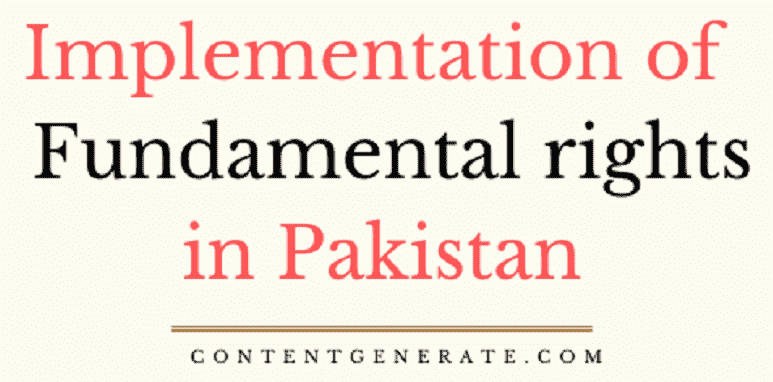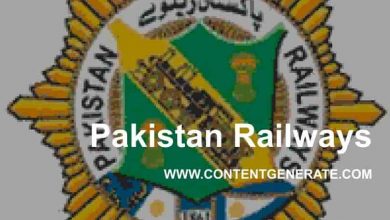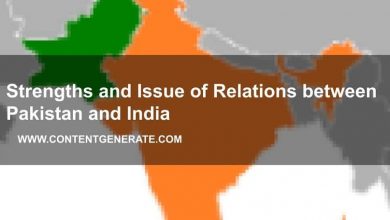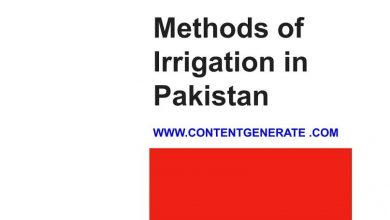Implementation of Fundamental Rights In Pakistan

Pakistan is a signatory to the Universal Declaration of Human Rights (UDHR) adopted by the United Nations General Assembly in 1948. As a signatory of UDHR Pakistan has incorporated fundamental rights in its current constitution, the 1973 constitution. In this article, I will define fundamental rights and discuss their implementation with reference to Pakistan.
Contents
What are the fundamental rights?
Fundamental rights refer to the sum of basic rights recognized by the constitution of a country. They are defined and added in the constitution to protect the rights of the citizens.
Fundamental Rights in the 1973 Constitution of Pakistan
- Security of person
- Right to a fair trial
- Freedom of speech.
- Right to information.
- Equality of citizens.
- Freedom of association.
- Right to education.
- Freedom of assembly.
- Freedom of movement.
- Right to property.
- Inviolability of dignity of man.
- Protection of property rights.
- Protection as to arrest and detention.
- Freedom to choose any profession.
- Elimination of slavery forced labor.
- Protection against retrospective punishment.
- Preservation of language, script, and culture.
- Safeguards against discrimination in services.
- Non-discrimination in access to public places.
- Protection against double punishment and self-incrimination.
- Freedom to profess religion and manage religious institutions.
- Safeguard against taxation in connection with any particular religion.
- The right to set up educational religious institutions.
1973 provisions related to fundamental rights in Pakistan
Despite being a signatory of the UDHR, Pakistan has faced difficulties in the implementation of fundamental rights. There is a myriad of issues that act as roadblocks on the way towards the realization of these rights. Issues in the implementation of basic rights include corruption, terrorism, etc. making it difficult to establish good governance.
Implementation of Fundamental Rights with reference to Pakistan
The constitution guarantees the treatment of minorities as equal and the same citizens of the state. But successive governments in Pakistan have failed in providing them security and protection.
Moreover, the national history has witnessed a ruthless crackdown of political dissent leaving little space for criticism and discourse. Enforced disappearances of the socio-politico activists, academics, and journalists have become a rule rather than an exception. Critics get punished for their criticism of government policies.
Access to education is one of the fundamental rights provided in the constitution. But, reports say 2 billion children are out of schools due to poverty, bonded labor, and shortage of educational facilities. Similarly, Govt. should allow people to get together, assemble, and voice for their rights. But, popular mass movements launched for the implementation of social justice are ruthlessly crushed.
The constitution also guarantees the elimination of slavery, bonded labor, etc. But in the interior of Sindh and Punjab, landlords still subject people working their lands to bonded labor and slavery. They chain them in their personal jails in their failure to obey their order or act otherwise.
Likewise, safeguards to language, script, and culture is also a fundamental right. Disappointingly, this provision is also only on papers without any practical implication. Only formalities have been made with regard to the promotion and preservation of local languages many among which are at the brink of being extinct.
The state is adamant to the promotion and preservation of local languages so much so that the previous government was even not bothered to include the local language of Gilgit-Baltistan in the 2017 census.
In short, it can be said that fundamental rights as enshrined in the constitution are not fully implemented in the country.



